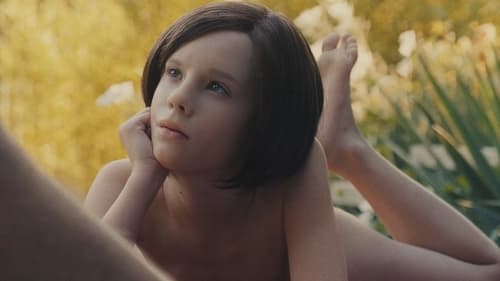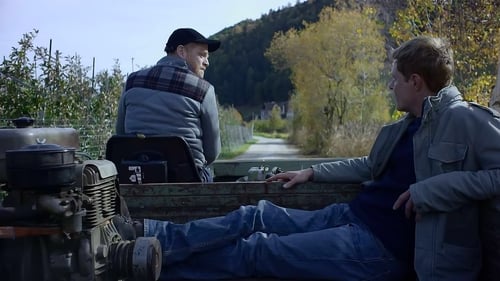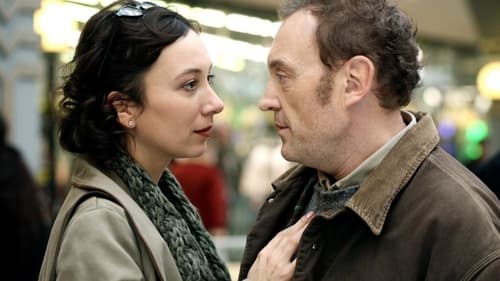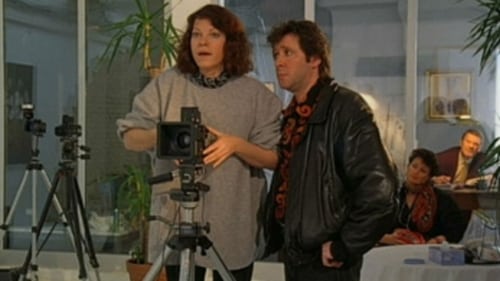Ingrid Burkhard
Birth : 1931-06-07, Vienna, Austria

Frau Schikowa
Elli is an android and lives with a man she calls her father. Together they drift through the summer. During the day they swim in the pool and at night he takes her to bed. She shares his memories and anything else he programs her to recall. Memories that mean everything to him but nothing to her. Yet, one night she sets off into the woods following a fading echo… The story of a machine and the ghosts we all carry within us.

Marianne
Albert grew up on an isolated mountain farm in the middle of nowhere in the Alps. Although he’s already in his 30s, his omnipresent mother Marianne still pulls the strings in his life. Not intentionally and only because of his mother’s pressure, Albert went to live in the nearby valley to make his living in a marble quarry. Marianne wants to protect him from the poor and lonesome life on the mountain and is even willing to denounce their bonds to the tradition of the farm, that has existed over centuries. Like an abandoned animal that keeps coming back to its territory, the introverted farmers son keeps sneaking back to the mountain as often as possible. When his father dies accidently whilst repairing the roof, Marianne fears, that Albert will take over the role of his father and return to the farm. Instead, she decides to hide the death from Albert and the outside world—and buries his corpse on the mountain.

Annegret
Without warning a father comes to visit his daughter abroad. He believes that she lost her humor and therefore surprises her with a rampage of jokes.

Mutter Drakuhl
According to an African fairy tale, every child receives a song from their parents that they carry with them throughout their lives. Richard, an orphaned Tanzanian immigrant, has never had his own song. How he got one before his unexpected death and the significant, though unintended, roles played by the dark-tourism entrepreneur Drakuhl, the gray-haired hair model Barney and the heavy-drinking music teacher Kiesel won't be revealed here. Merely that the song Dead Man Play becomes an international hit.

Frau Schweiger
Blond, half-long hair floats in a seepage pond. A well-to-do lady calls the police, and departmental inspector Franzi fishes out a scalp.

Linzerin
A tragicomic story about an old woman, who, to the horror of her son, is cooking up a meal in the middle of the night for her long-deceased friends. Fantasy, dream or reality? What is the difference? When people get old...

Frau Leopold
For months, the corrupt Viennese policeman Albert Schuh unsuccessfully investigates the murder case of his former friend and colleague. Then he gets a young, overambitious partner. The German colleague Thorsten Richter is a set of correctness and ambition, and thus the exact opposite of the Viennese, the "benefits" from the criminal scene is quite open. Since the two can not stand, the dispute does not stay out. The Austrian stops the German an unnecessary undercover job on an erotic chat line and determined alone on.

Toni Sackbauer

Aloisia
The Berghotel Edelweiss, located amidst a picture-book landscape, is a traditional family business. To meet growing demands, Max Höllerer takes out a loan to expand the property. Unfortunately, he has speculated. The bank sells the house, but secretly plans to make a large spa hotel out of it. The attractive Sarah Sand is scheduled on Höllerer to make him the post of managing director tasty.

Irmgard 'Irmi' Sandgruber

Frau Molnar
A young woman is found raped and bludgeoned to death. Her father can’t reconcile himself with her death, and even less with the fact that the murderer was never found. Half of his life he continues the search. Finally, after more than 20 years, as DNA-analysis becomes a factor in forensic medicine, new perspectives open.

Antonia „Toni” Sackbauer
It's 30 years later and the Sackbauers have estranged themselves from everyone; only mother "Toni" tries to re-establish the old happy family.

Irmgard 'Irmi' Sandgruber

Irmgard 'Irmi' Sandgruber

Irmgard 'Irmi' Sandgruber
German TV movie.

Gusti
The Seebergs are a happy family - until Melanie's mother moves in. The old lady's malice plunges the once sweet home into chaos and discord. When the "sugar granny" even puts her tolerant son-in-law to flight, Melanie resorts to extreme measures to get her perfect world back.

Frau Stirbl
The film is based on the figure of the police inspector Simon Polt of the Austrian author Alfred Komarek.

Janas Oma

Imbiss-Rosi
Former detective Brenner has become an ambulance driver and finds himself, much to his dismay, caught up in a war between two rival first aid organizations.

Irmgard 'Irmi' Sandgruber

Frau Neiss

Martha Feldmann

Toni Sackbauer
A faithful family has gathered around "Mundl": his wife Toni, who says little but always has the last word; his son Karli, who marries Irmi, a woman from "higher circles", and his parents-in-law, the Werners, who have some difficulty in getting accustomed to the coarse tones of the Sackbauer family. Then Mundl's daughter Hanni brings home a bespectacled intellectual, of all people, and altogether, everyday life in Vienna can be rather exciting.

Thomas Mutter
Henriette, the buoyant wife of a politician leaves her ambitious husband in the middle of an election campaign and begins a new life. The fact that, as the still legally married wife of a public figure, she takes a job as a model for lingerie just can't go well.

Frau Schostal
The film presents the political events surrounding the Anschluss in March of 1938 through the lives of Carola Hell, a popular young actress at the prestigious Theater in der Josefstadt, and Martin Hofmann, the Jewish journalist she plans to marry. When we encounter the couple in the lovely springtime weather their future is full of promise. They are determined to stay clear of politics. Yet in the climate of the time, nobody of her prominence or his religion can remain apolitical. Although Martin's journalist friend, Drechsler, calls to inform them that the Nazis plan to take over Austria soon, they concentrate on their work and their private happiness and dismiss the warnings.

Hilde Dorn
A misunderstood youth is incorrectly placed in a mental hospital.

Amalie Schlick
A historical drama about the revolution of 1848/1849 in the Austrian empire.

This two-part drama examines the fate of Haneke’s own generation which came of age after World War II. The first part depicts the generational gap between 1950s teenagers and their parents while the second shows this same group of characters twenty years later as they have grown up to be dysfunctional and suicidal adults. Regarded as the most significant of Haneke’s early works, Lemmings contains incipient treatments of many of the themes he would later elaborate on in his theatrical features.

Pia Lieberherr

Böske
















